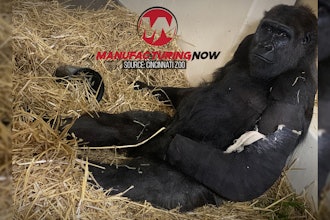A recent study of genetically modified salmon led scientists to conclude that commercializing the altered fish would inherently pose some risk to the environment.
"We are expecting very little risk at the moment because there are very few facilities that actually hold these fish," Swedish ecologist Fredrik Sundström told National Public Radio. "I think what's a worry to some people is if it becomes commercialized and you find these kind of fish in millions of hatcheries around the world."
Sundström and two researchers from Fisheries and Oceans Canada analyzed dozens of studies of GMO salmon in the journal BioScience.
Modified salmon aren't new — a Massachusetts company called AquaBounty Technologies has sought federal approval to sell them for nearly two decades — but the report aimed to predict what impact the fish would make if it was released into the wild.
The analysis found that the modified Atlantic salmon — which are engineered to grow bigger and faster than their wild counterparts — eat more, spend more time near the surface, generally avoid groups and have reduced immune function.
The study was largely inconclusive about how the fish would impact other salmon populations or their habitats. Sundström, however, didn't rule out the possibility of the altered salmon surviving in the wild and said the practice accepts “a certain amount of risk.”
"Invasive species also didn't evolve in the environment where they are now invading, and they still are able to survive and flourish," Sundström said.
AquaBounty officials said any concerns are moot since escape is "virtually impossible." Spokesman Dave Conley told NPR that the GMO fish would be contained with a system of screens and filters and that the population would be entirely female and sterile.
Critics, however, questioned the reliability of those containment systems — particularly for farms located near waterways — and said even the small likelihood of an unsuccessful sterilization could result in problems when large populations are involved.
"This new assessment adds to the body of science showing that this genetically engineered fish doesn’t offer any benefit to aquaculture, has unique health problems and presents environmental risks," said Dana Perls of advocacy group Friends of the Earth.
Perls' group previously called on the FDA to terminate its review of AquaBounty and encouraged retailers to pledge not to sell modified salmon. Friends of the Earth spearheaded a petition drive that this week that urged Seattle-based Costco to join that effort.
“Genetically engineered salmon are a threat to the Pacific Northwest,” Dylan Knutson of Loki Fish Company said in a statement. “On top of the documented issues associated with farmed salmon ... introducing a frankenfish opens Pandora's box of probable environmental catastrophe."
Study Aims To Predict Environmental Impact Of GMO Salmon
Commercializing the altered fish could pose some risk to the environment.
Jun 26, 2015
Latest in Home
UAW Wins Big at Volkswagen in Tennessee
April 22, 2024
GE Helps 3D Print a Gorilla-Proof Cast
April 22, 2024






















